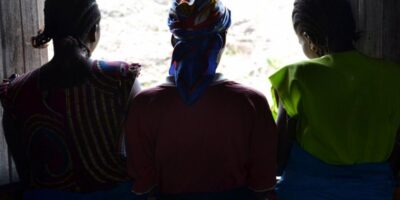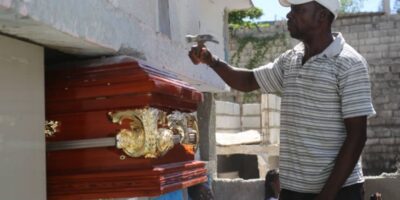The juvenile court of Port-au-Prince has not been functioning for almost three years. 95% of the minors currently placed at the Rehabilitation Center for Minors in Conflict with the Law are in “prolonged preventive detention”
The juvenile court in Port-au-Prince, the largest of the two juvenile courts in the country, has been closed for almost three years.
“After a clash between gangs in the Bel-Air area where the court was housed in October 2019, public officials only showed up on the premises to report their presence. The doors of the court are permanently closed as of mid-June 2021,” informs the clerk Joel Joseph. The professional has been working at the court for almost ten years.
Police regularly arrest children who are gang members. Sometimes these young “soldiers” are interviewed by the police.
According to a source at the Directorate for Penitentiary Affairs who requested anonymity for security reasons, children continue to arrive at the Centre de réinsertion des mineurs en conflit avec la loi (CERMICOL), which has become a space for preventive detention rather than a corrective institution.
“Last week, two children arrived at the center without being tried,” the source informed AyiboPost in an interview on September 15, 2022.
According to Article 50 of the Penal Code, the preventive detention of a minor in conflict with the law can only be a last resort.
However, of the 87 minors detained at CERMICOL, only 4 are convicted and have already appeared before a judge. The other 83 are in preventive deprivation of liberty (“nan depo” in the jargon of the Center).
According to this source from the Directorate for Penitentiary Affairs, close to CERMICOL, many of these minors are detained for minor offenses for which they should not even be at the center. Others would not spend three months there if they were tried.
“Looking at the individual inmates’ files, many of them are there for simple petty theft, or fights… But unfortunately, they’ve been at the center for four years, five years or even more.”
Most of these children come from disadvantaged backgrounds, with parents who cannot afford a lawyer. The impact of the sense of injustice at CERMICOL and the recidivism of incarcerated minors is almost never studied in Haiti.
For example, for an act committed before the age of sixteen (the age of criminal responsibility), no sentence should legally extend beyond the time when the accused reaches the age of 21, according to university professor Frantz Nerette.
The CERMICOL population has many inmates over the age of 21. As of 2019, no ruling establishes responsibility for these children in conflict with the law.
“We cannot take the responsibility of bringing in minors for trial since the location is not safe,” explains Judge Gabard Antoine. This magistrate is mainly assigned to adoption cases.
However, this situation does not seem to worry the Ministry of Justice. “We are not offered any options,” complains the clerk Joel Joseph. According to the officer, the Ministry could try to find another location to restart the activities of the court.
When contacted by AyiboPost, the Ministry’s Director of Judicial Affairs did not respond.
Couverture : Une vue de l’intérieur d’une des cellules du quartier Delmas de la prison pour garçons de Fort Dimanche à Port-au-Prince, en 2007. Michel Du Cille / Washington Post







Comments